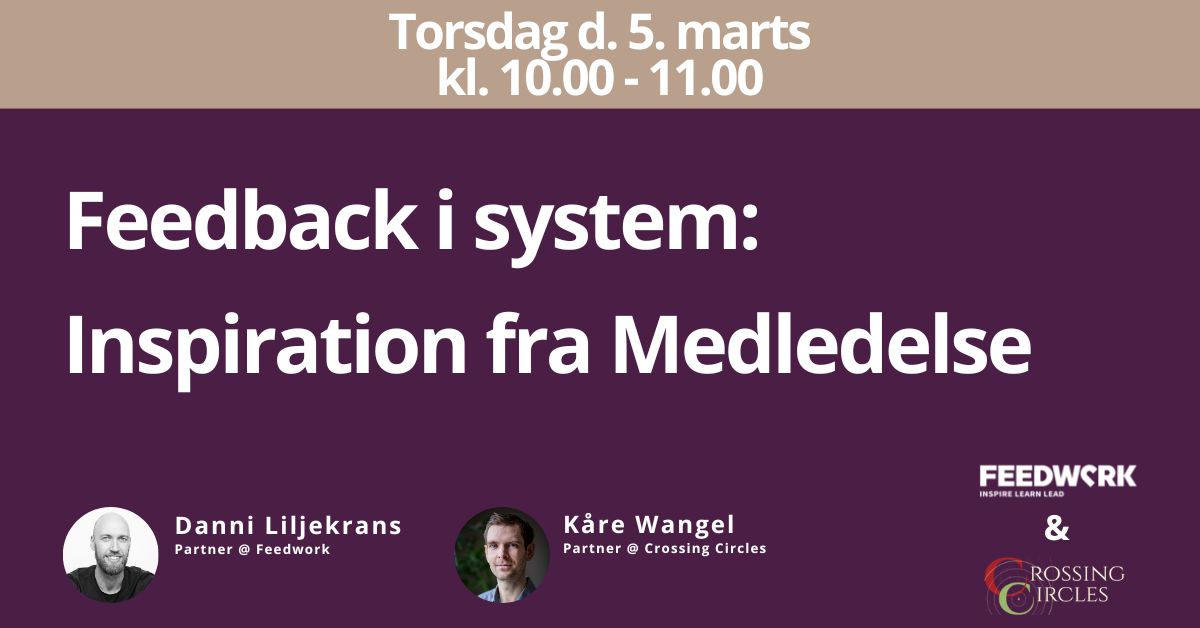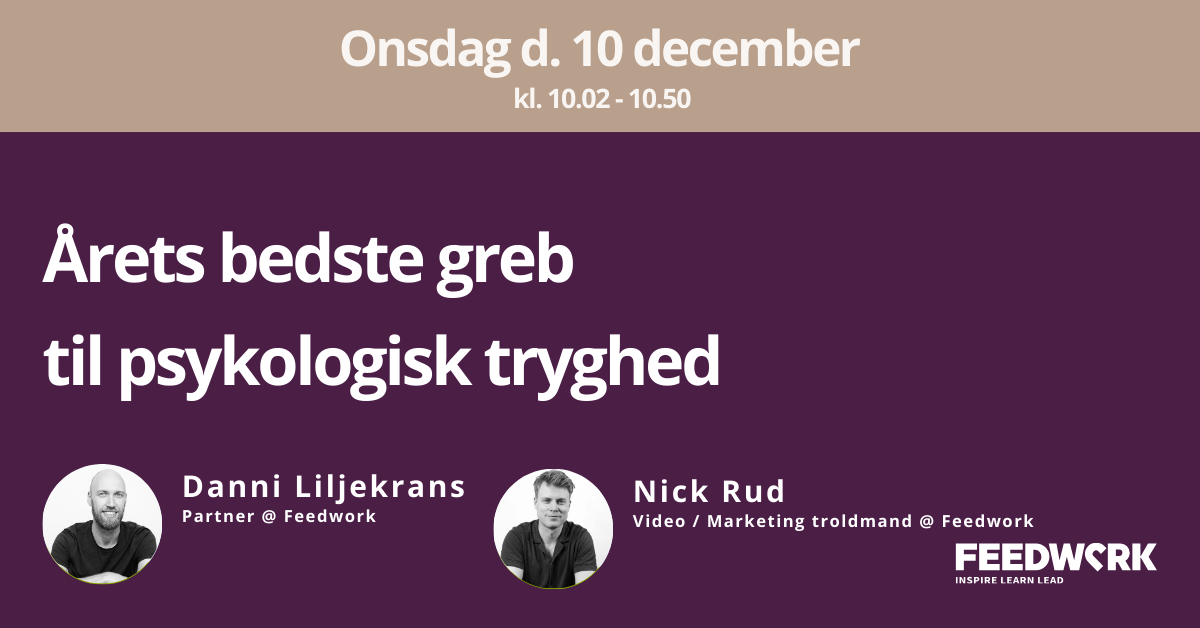A theory that has won great acclaim for its in-depth approach to motivation is the Self Determination Theory (SDT), developed by the psychologists Edward L. Deci and Richard M. Ryan. Self-determination theory focuses on three universal psychological needs — autonomy, competence, and cohesion — which, when fulfilled, strengthen intrinsic motivation.
This article dives into how self-determination theory can be applied to increase motivation and well-being in the workplace, and how you as a leader can implement it to create a sustainable and engaged employee culture.
What is the theory of self-determination?
The theory of self-determination is grounded in three fundamental psychological needs that, according to Deci and Ryan, are essential for human well-being and optimal performance:
- Autonomy: The need to experience freedom and self-determination in one’s actions. This involves having control over one’s choices and the processes involved in one’s work.
- Competence: The need to feel skilled and effective in one’s tasks. People thrive when they feel capable, master their skills, and achieve success.
- Relatedness: The need to feel socially connected to others and to be part of a supportive and accepting community.
These three needs are universal and relevant across all job types, industries, and levels. When employees feel their needs for autonomy, competence, and relatedness are met, they tend to be more engaged and motivated to perform at their best. Let’s explore how each of these needs influences motivation in the workplace.
If necessary, learn about coaching.
Autonomy: A Catalyst for True Motivation – How Google Leads the Way
Autonomy is about empowering employees to make decisions regarding how they approach their work. This means that employees are given a degree of participation and flexibility in their workflows. While autonomy does not imply an absence of structure, it does mean that employees have the freedom to select their own methods within the established guidelines for their role.
One of the most well-known examples of autonomy in action is Google's "20% Time" initiative. Introduced by Google’s founders, Larry Page and Sergey Brin, this policy aimed to sustain the entrepreneurial culture that had driven the company’s success in its early years. The initiative allows employees to dedicate up to 20% of their work time to projects of their choice—whether these projects contribute directly to the company or involve experimenting with new ideas. This approach has led to the creation of iconic products such as Gmail and Google News, both of which began as 20% projects.
How to Promote Autonomy in the Workplace:
- Freedom in Task Management: Allow employees to prioritize tasks and decide on their approach to completing them.
- Recognize Employee Initiatives: When employees present innovative ideas or alternative methods, management should acknowledge and support these contributions.
- Flexible Working Conditions: Provide options like remote work, flexible hours, or part-time arrangements to meet individual needs.
Research shows that employees with high levels of autonomy are generally more creative, productive, and satisfied with their work. This is because autonomy fosters a sense of ownership and personal responsibility, leading to stronger engagement and commitment.
Competence: Mastering motivation
Feeling competent and capable is crucial to employee motivation. If one experiences success and progress, it creates a sense of mastery, which helps to strengthen self-confidence and the desire to perform and develop. At the same time, you become more confident in your workflow and may be able to gradually master complexity even better.
Audit and Consulting House Deloitte has an extensive learning and development programme, which is designed to meet the needs of employees for continuous upskilling and skill development. The program offers multimodal learning opportunities such as intensive bootcamps, shorter courses, e-learning, and mentoring.
One specific initiative, Deloitte University, serves as a global learning hub where employees participate in workshops, network with colleagues, and access both technical and "soft skills" training modules. The program also includes a digital platform featuring tutorials and an AI-based learning assistant, which helps employees personalize their learning experience and stay current with new technologies and trends.
How to support skills development:
- Ongoing feedback: Provide frequent and constructive feedback so employees know where they stand and what they can improve.
Read more about feedback and feedback culture: Feedback - a tool in management that provides better relationships and stronger performances - Create opportunities for learning: Give your employees the opportunity to develop and immerse themselves in different aspects of their work. Offer courses, training programs and mentoring to strengthen employee skills.
- Graduated Challenges: Assign tasks that are slightly beyond your employees' comfort zones but still achievable. When individuals are pushed just a bit outside their comfort zones, they grow. However, this requires a work environment where it’s safe to make mistakes and learn from them.
Read more: Tips for a mentally stable work environment
Studies show that when employees are given opportunities to develop their competencies and acquire new skills, their engagement and satisfaction increase significantly. The sense of mastery motivates them to take responsibility and pursue both personal and professional goals, creating a win-win situation for both the organization and its employees.
Cohesion: Building a Strong Social Community
Cohesion is a central element of self-determination theory, focusing on fostering a sense of connection and support among employees. A workplace where individuals feel connected to their colleagues and valued by management is more likely to have engaged and satisfied employees.
Read more: Become a good relational leader
Cleveland Clinic exemplifies an organization that prioritizes a team-based culture and employee well-being through team activities and structured wellness initiatives. The organization employs a “team of teams” approach, where cross-functional teams collaborate on patient care and targeted development initiatives. To foster cohesion and engagement, Cleveland Clinic organizes regular activities, including team meetings, coaching sessions, and social events, all of which strengthen personal connections and boost employee morale. Additionally, employee achievements are recognized through the “Caregiver Celebrations” platform, which promotes a positive and inclusive workplace culture.
How to Promote Cohesion in the Workplace:
- Create an Inclusive Culture: Ensure that all employees feel like valued members of the team, regardless of their position or seniority.
- Encourage Collaboration: Design projects and tasks that require employees to work together and share ideas, fostering teamwork and knowledge exchange.
Read more: Distributed Management: Increasing Autonomy and Innovation
- Organize social events: Offer out-of-hours activities that promote community and strengthen social ties.
Studies indicate that high levels of cohesion and social support in the workplace reduce stress and increase job satisfaction. When employees feel part of a community, they become more motivated and willing to go the extra mile.
Self-Determination Theory vs. External Motivation
Traditional management approaches often emphasize external rewards, such as pay raises and bonuses, to drive motivation. While effective in the short term, research suggests these methods do not foster long-term motivation. In fact, external motivation can diminish intrinsic motivation, as employees may begin to view work as merely a means to an external reward, rather than a source of personal satisfaction. When work is perceived as an obligation for external rewards, the enjoyment of the task itself may decrease, leading to reduced long-term commitment.
Research within self-determination theory shows that employees motivated by intrinsic factors—such as the enjoyment of work and opportunities for personal development—tend to exhibit greater commitment, persistence, and job satisfaction. Intrinsic motivation is associated with a deeper engagement in the task itself, which enhances creativity, job satisfaction, and a sense of ownership.
Studies by Deci and Ryan also indicate that companies prioritizing autonomy, skill development, and cohesion typically see higher employee satisfaction and productivity, as well as reduced absenteeism. Intrinsic motivation fosters a culture where employees pursue individual and organizational goals with enthusiasm and persistence.










.png)